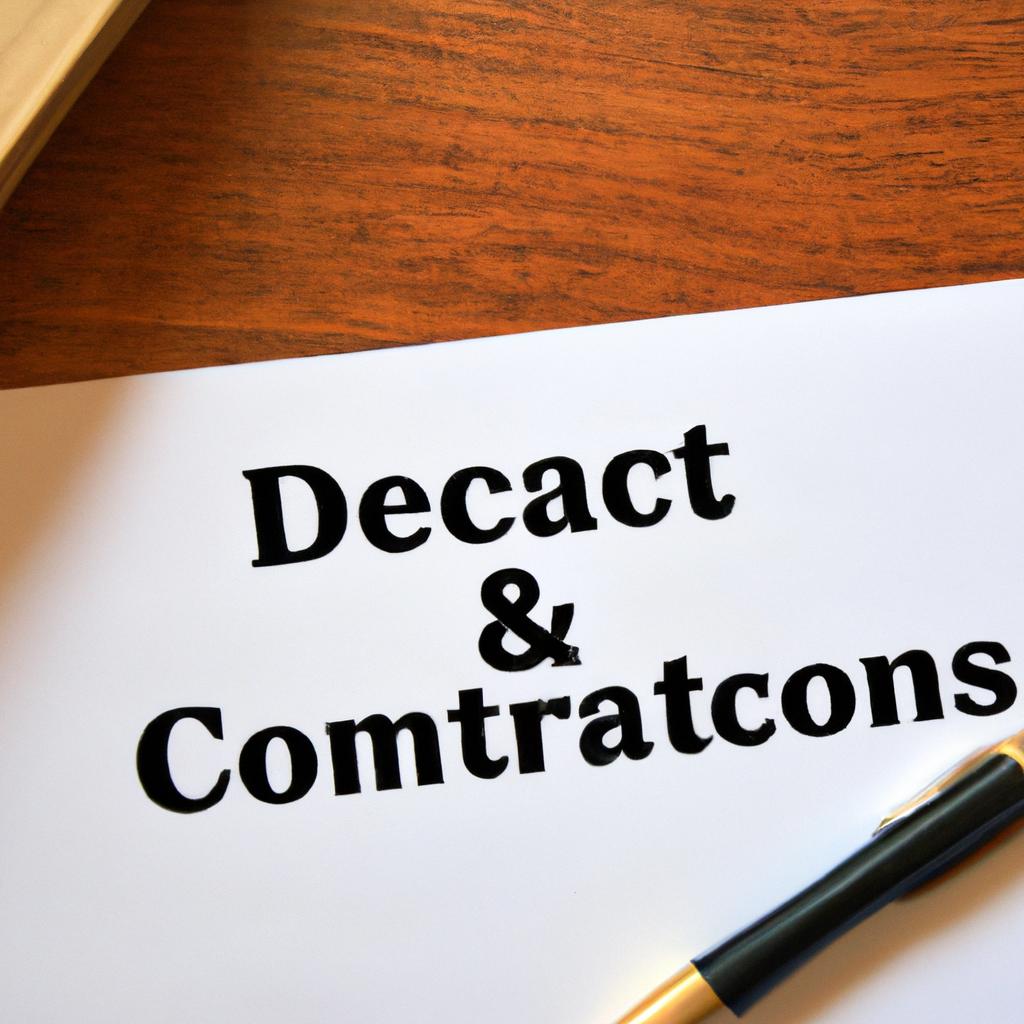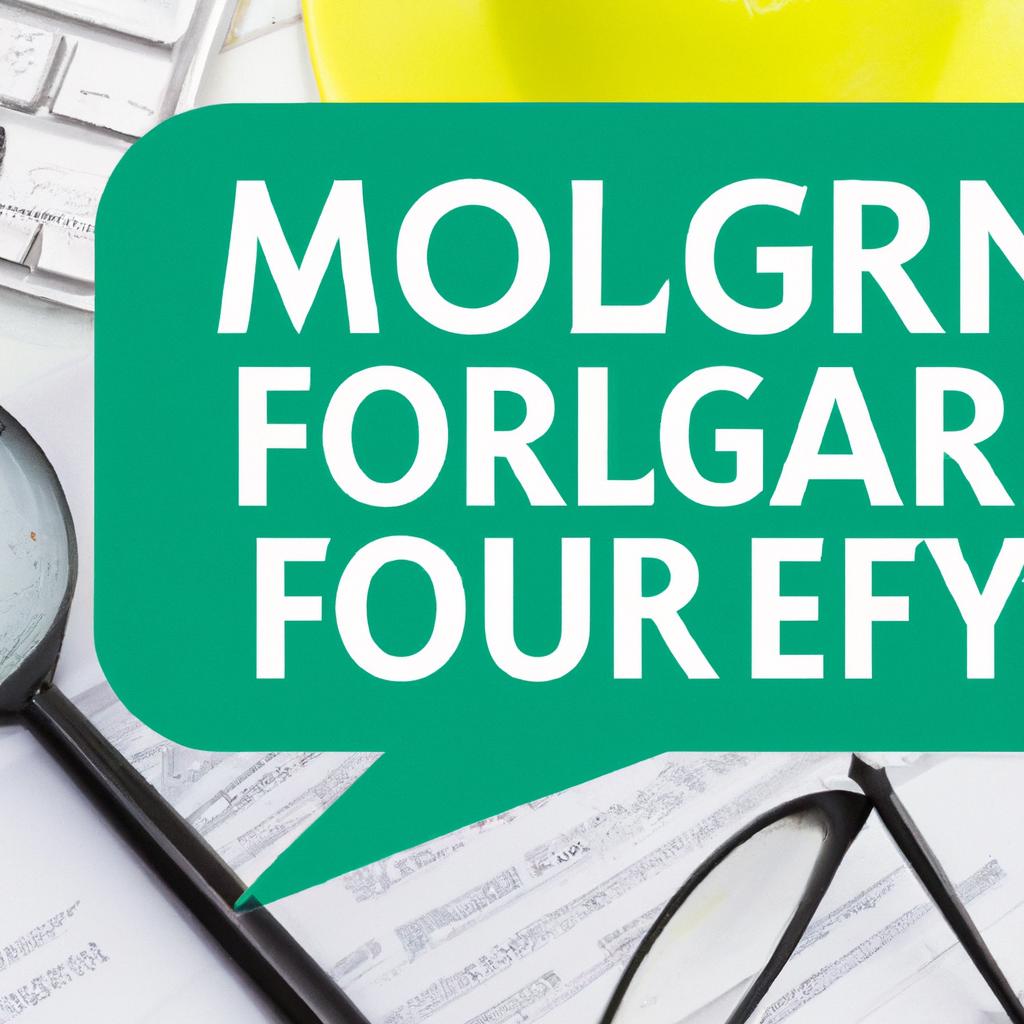Obtaining the deed to your house is a crucial step in asserting ownership and protecting your property rights. As experienced professionals in estate planning and property law, the Morgan Legal Group in New York City is well-equipped to guide you through the process of securing your house deed. In this article, we will outline the steps and considerations involved in obtaining a house deed, ensuring that you have all the necessary information to safeguard your property interests effectively.
Acquiring Legal Counsel for Deed Transfer Process
When it comes to acquiring legal counsel for the deed transfer process, it is crucial to seek out professionals who have experience and expertise in real estate law. At Morgan Legal Group, our team of knowledgeable attorneys specializes in handling all aspects of property transfer, ensuring that the process is smooth and legally compliant.
By engaging our services, you can rest assured that your house deed will be transferred correctly and efficiently. Our attorneys will guide you through each step of the process, from drafting the necessary legal documents to conducting title searches and closing the deal. With our expertise and attention to detail, you can confidently entrust us with the important task of transferring your property deed.

Navigating the Complexities of Property Title Searches
When it comes to obtaining a house deed, it is essential to understand the complexities of property title searches. This process involves thorough research and diligence to ensure that you have a clear understanding of the property’s ownership history. Here are some key steps to help guide you through the process:
- Start with the county clerk: Begin your search by visiting the county clerk’s office in the county where the property is located. They will have records of all property transactions, including deeds, mortgages, and liens.
- Review online databases: Many counties now offer online databases that allow you to search for property records from the comfort of your own home. These databases can be a valuable resource in your search for a house deed.

Understanding the Importance of Properly Executed Deed Documents
Properly executed deed documents are crucial when it comes to transferring ownership of real estate properties. These legal documents serve as proof of ownership and help to establish the rights and responsibilities of the property owner. Without a valid deed, there can be disputes regarding property rights, which can lead to costly legal battles.
When it comes to getting a house deed, it is important to follow the proper legal procedures to ensure that the transfer of ownership is valid and legally binding. This includes conducting a title search to verify the property’s ownership history, drafting a deed that accurately reflects the terms of the transfer, and executing the deed in accordance with state laws. By working with an experienced real estate attorney, you can ensure that your deed documents are properly executed and your property rights are protected.

Securing Your Future with Expert Assistance from Morgan Legal Group
When it comes to securing your future through property ownership, obtaining a house deed is an essential step in ensuring that your rights to the property are properly documented. At Morgan Legal Group, our team of expert attorneys specializes in real estate law and can help guide you through the process of obtaining a house deed with ease.
Through our personalized legal services, we can assist you in navigating the complexities of property ownership and ensure that your interests are protected. Whether you are buying a new property, transferring ownership, or inheriting a house deed, our experienced attorneys are here to provide you with the expert assistance you need to secure your future.
Q&A
Q: What is a house deed and why is it important?
A: A house deed is a legal document that proves ownership of a property. It is important because it provides evidence of ownership and outlines the rights and responsibilities of the property owner.
Q: How can I obtain a copy of my house deed?
A: To obtain a copy of your house deed, you can visit the county recorder’s office where the property is located. You may also be able to request a copy online or through the mail.
Q: What information do I need to provide to get a copy of my house deed?
A: You will need to provide the property address, the current owner’s name, and any other relevant information that may help the county recorder’s office locate the deed.
Q: How much does it cost to get a copy of my house deed?
A: The cost of obtaining a copy of your house deed varies by jurisdiction. Typically, there is a small fee associated with obtaining a copy of the deed.
Q: Can I transfer ownership of a house without a house deed?
A: In most cases, you will need a house deed to transfer ownership of a property. Without a deed, it may be difficult to prove ownership and legally transfer the property to another party.
Q: Is it important to keep a copy of my house deed in a safe place?
A: Yes, it is important to keep a copy of your house deed in a safe place. Losing the deed can make it difficult to prove ownership of the property in the future.
Closing Remarks
As you embark on the journey of obtaining your house deed, remember that patience and persistence are key. By following the steps outlined in this article, you can navigate the process with confidence and ease. Your house deed is not just a piece of paper, but a symbol of your hard work, dedication, and dreams realized. So go forth, armed with knowledge and determination, and secure your place as the proud owner of your very own piece of paradise. Happy home owning!
 Important Note: This article is for informational purposes only and does not constitute legal advice. If you have any questions or concerns about obtaining a house deed, please consult a real estate attorney or your local government agencies for guidance.
Important Note: This article is for informational purposes only and does not constitute legal advice. If you have any questions or concerns about obtaining a house deed, please consult a real estate attorney or your local government agencies for guidance.
Are you a homeowner looking to secure your house deed? Perhaps you’ve recently paid off your mortgage or inherited a property, and you want to make sure your ownership is recorded properly? Obtaining a house deed is a crucial step in securing your property rights and maintaining a clear ownership title. In this article, we will discuss everything you need to know about how to get a house deed.
First, let’s start with some basic information about what a house deed is and why it’s essential to have one. A house deed, also known as a property deed, is a legal document that proves ownership of your house or property. It contains information about the property, such as location, boundaries, and the names of the owners. A house deed is used to transfer ownership of a property from one person to another and serves as evidence of ownership in case of any disputes or legal issues.
Now that you understand the importance of having a house deed, let’s look at the steps to obtaining one.
Step 1: Find Out Who Has Your House Deed
The first step in getting your house deed is to determine who has it. If you recently purchased your house, then the deed may still be with the title company or your lender. You can contact them to obtain a copy of the deed. If you have paid off your mortgage, the deed should be with your lender, your attorney, or the county recorder’s office. If you inherited the property, then the deed should be with the executor of the estate or the county recorder’s office.
Step 2: Contact the County Recorder’s Office
If you are unable to locate your house deed, then the next step is to reach out to the county recorder’s office in the county where your property is located. The county recorder’s office is responsible for keeping and updating property records for your area. You can either visit the office in person or contact them by phone or email. They will be able to provide you with a copy of your house deed for a fee.
Step 3: Gather the Necessary Documents
To obtain your house deed, you will need to provide proof of ownership. This can include a copy of your purchase contract, title policy, or mortgage documents, depending on your situation. If you inherited the property, you may need to provide a copy of the will or other legal documents confirming your ownership. It’s always recommended to keep these important documents in a safe and accessible place to avoid any delays in obtaining a house deed.
Step 4: Pay the Transfer and Recording Fees
To transfer the house deed from one owner to another, there are certain fees involved. These fees vary depending on your location and the type of property. Some states require a transfer tax, which is a percentage of the property’s sale price, while others charge a flat fee. You will also need to pay a recording fee, which is the cost of recording the deed with the county and updating the property records. Make sure to check with your local county recorder’s office for the specific fees required in your area.
Step 5: Finalize the Transfer of Ownership
Once you have obtained your house deed and paid the necessary fees, the transfer of ownership must be finalized. This means signing and notarizing the deed, and then recording it with the county recorder’s office. You may also have to pay a transfer tax or fee to the state where you live.
Benefits and Practical Tips
-Securing your house deed ensures that you have documented proof of ownership, which provides legal protection against any disputes or claims.
-Keeping a copy of your house deed can also make it easier to sell or transfer your property in the future.
-If you have trouble locating your house deed, you can also hire a title company or real estate attorney to assist you.
Case Study: John recently paid off his mortgage and wanted to obtain his house deed. He followed the above steps and was able to locate his deed with the help of the county recorder’s office. He paid the necessary fees and finalized the transfer of ownership, giving him peace of mind and legal documentation of his property ownership.
In Conclusion
Obtaining your house deed is an essential step in securing your property rights. By following the steps outlined in this article, you can ensure that you have a legitimate and legal document proving your ownership of your home or property. Remember to keep your house deed in a safe and easily accessible place for future reference.




